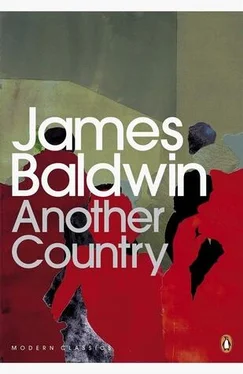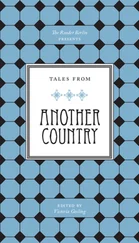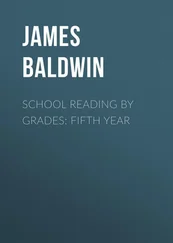James Baldwin - Another Country
Здесь есть возможность читать онлайн «James Baldwin - Another Country» весь текст электронной книги совершенно бесплатно (целиком полную версию без сокращений). В некоторых случаях можно слушать аудио, скачать через торрент в формате fb2 и присутствует краткое содержание. Год выпуска: 2001, Издательство: Penguin Books, Жанр: Современная проза, на английском языке. Описание произведения, (предисловие) а так же отзывы посетителей доступны на портале библиотеки ЛибКат.
- Название:Another Country
- Автор:
- Издательство:Penguin Books
- Жанр:
- Год:2001
- ISBN:нет данных
- Рейтинг книги:3 / 5. Голосов: 1
-
Избранное:Добавить в избранное
- Отзывы:
-
Ваша оценка:
- 60
- 1
- 2
- 3
- 4
- 5
Another Country: краткое содержание, описание и аннотация
Предлагаем к чтению аннотацию, описание, краткое содержание или предисловие (зависит от того, что написал сам автор книги «Another Country»). Если вы не нашли необходимую информацию о книге — напишите в комментариях, мы постараемся отыскать её.
is a novel of passions — sexual, racial, political, artistic — that is stunning for its emotional intensity and haunting sensuality, depicting men and women, blacks and whites, stripped of their masks of gender and race by love and hatred at the most elemental and sublime. In a small set of friends, Baldwin imbues the best and worst intentions of liberal America in the early 1970s.
Another Country — читать онлайн бесплатно полную книгу (весь текст) целиком
Ниже представлен текст книги, разбитый по страницам. Система сохранения места последней прочитанной страницы, позволяет с удобством читать онлайн бесплатно книгу «Another Country», без необходимости каждый раз заново искать на чём Вы остановились. Поставьте закладку, и сможете в любой момент перейти на страницу, на которой закончили чтение.
Интервал:
Закладка:
“You writing?” asked Lorenzo, still smiling. For he was one of those poets who escaped the terrors of writing by writing all the time. He carried a small notebook with him wherever he went and scribbled in it, and when he got drunk enough, read the results aloud. It lay before him, closed, on the table now.
“I’m trying,” said Vivaldo. He looked above their heads at the window, out into the streets. “It’s a dead night.”
“It sure is,” said Harold. He looked over at Vivaldo with his little smile. “Where’s your chick, man? Don’t tell me she’s got away.”
“No. She’s uptown, at some kind of family deal.” He leaned forward. “We have a deal, dig, she won’t bug me with her family and I won’t bug her with mine.”
Belle giggled again. Lorenzo laughed. “You ought to bring them together. It’d be the biggest battle since the Civil War.”
“Or since Romeo and Juliet,” Belle suggested.
“I’ve been trying to do that in a long poem,” Lorenzo said, “you know, Romeo and Juliet today, only she’s black and he’s white—”
“And Mercutio’s passing,” grinned Vivaldo.
“Yes. And everybody else is all fucked up—”
“Call it,” suggested Harold, “ Pickaninnies Everywhere .”
“Or Everybody’s Pickaninnies .”
“Or, Checkers, Anyone? ”
They all howled. Belle, still clinging to her thumbnail, laughed until tears rolled down her face.
“You people are high! ” said Vivaldo.
This sent them off again. “Baby,” cried Lorenzo, “one day, you’ve got to tell me how you figured that out!”
“You want to turn on?” Harold asked.
It had been a long time. He had become bored by the people with whom one turned on, and really rather bored with marijuana. Either it did not derange his senses enough, or he was already more than sufficiently deranged. And he found the hangover crushing and it interfered with his work and he had never been able to make love on it.
Still, it had been a long time. It was only ten past eleven, he did not know what he was going to do with himself. He wanted to enter into, or to forget, the chaos at his center.
“Maybe,” he said. “Let me buy a round first. What’re you drinking?”
“We could make it on back to my pad,” said Harold, scowling his little scowl.
“I’m having beer,” said Lorenzo. His expression indicated that he would rather have had something else, but did not wish to seem to be taking advantage of Vivaldo.
Vivaldo turned to Belle. “And you?”
She dropped her hand and leaned forward. “Do you think I could have a brandy Alexander?”
“God,” he said, “if you can drink it, I guess they can make it.” She leaned back again, unsmiling, oddly ladylike, and he looked at Harold.
“Beer, dad,” Harold said. “Then we’ll split.”
So he walked over to the bar, and ordered the round, making a special trip to carry the brimming, viscous Alexander. He knew that Lorenzo liked rye and so he bought him a straight one and a bottle of beer, and a beer for Harold, and a double bourbon for himself. Let’s go for broke, he thought, the hell with it. Let’s see what happens. And he really could not tell, because he did not want to know, whether he was acting out of panic or recklessness or pain. There was certainly something he did not want to think about: he did not want to think about where Ida was, or what she was doing now. Not now, later for you, baby. He did not want to go home and lie awake, waiting, or walk up and down, staring at his typewriter and staring at the walls. Later for all that, later. And beneath all this was the void where anguish lived and questions crouched, which referred only to Vivaldo and to no one else on earth. Down there, down there, lived the raw, unformed substance for the creation of Vivaldo, and only he, Vivaldo, alone, could master it.
“Here’s how,” he said, and, unsteadily, they raised their glasses, and drank.
“Thanks, Vivaldo,” said Lorenzo, and downed his whiskey in a single swallow. Vivaldo looked at the young face, which was damp and a little gray and would soon be damper and grayer. The veins in the nose were thickening and darkening; and, sometimes, as now, when Lorenzo looked straight before him, the eyes were more baffled and infinitely lonelier than those of a child.
And at such moments Belle watched him, too, sympathy struggling to overcome the relentless vacuity in her face. And Harold seemed hooded then, like a great bird watching from a tree.
“I’d love to go back to Spain,” said Lorenzo.
“Do you know Spain?” asked Vivaldo.
“He used to live there,” Belle said. “He always talks about Spain when we get high. We were supposed to go this summer.” She bent her head over her cocktail glass, disappearing for a moment, like some unprecedented turtle, behind the citadel of her hair. “Are we going to go, baby?”
Lorenzo spread his hands, helplessly. “If we can get enough bread, we’ll go.”
“It shouldn’t cost much to get to Spain,” Harold said. “And you can live there for almost nothing.”
“It’s a wonderful place,” said Lorenzo. “I lived in Barcelona, on a fellowship, for over a year. And I traveled all over Spain. You know, I think they’re the grooviest people in the world, the sweetest cats I ever met, I met in Spain. That’s right. They’ll do anything for you, baby, lend you their shirts, tell you the time, show you the ropes—”
“Lend you their sisters,” Harold laughed.
“No, man, they love their sisters—”
“But hate their mothers?”
“No, man, they love them, too. Like they never heard of Freud.” Harold laughed. “They’ll take you home and feed you, they’ll share anything they’ve got with you and they’ll be hurt if you don’t take it.”
“Mothers, sisters, or brothers,” Harold said. “Take them away. Open up that window and let that foul air out.”
Lorenzo ignored this, looking around the table and nodding gravely. “That’s the truth, men, they’re great people.”
“What about Franco?” Belle asked. She seemed rather proud to know that Franco existed.
“Oh, Franco’s an asshole, he doesn’t count.”
“Bull shit he doesn’t count,” cried Harold, “you think all those uniforms that we help Franco pay for are walking around Spain just for kicks? You think they don’t have real bullets in those guns? Let me tell you, dad, those cats are for real, they shoot people!”
“Well. That doesn’t have anything to do with the people,” said Lorenzo.
“Yeah. But I bet you wouldn’t like to be a Spaniard,” Harold said.
“I’m sick of all this jazz about the happy Spanish peasant,” Vivaldo said. He thought of Ida. He leaned over to Lorenzo. “I bet you you wouldn’t want to be a nigger here, would you?”
“Oh!” laughed Lorenzo, “your chick sure has you brainwashed!”
“Brainwashed, hell. You wouldn’t want to be colored here and you wouldn’t want to be Spanish there.” There was a curious tension in his chest and he took a large swallow of his whiskey. “The question is — what do we want to be?”
“I want to be me,” said Belle, with an unexpected ferocity, and chewed at her thumbnail.
“Well,” asked Vivaldo, and looked at her, “what’s stopping you?”
She giggled and chewed; she looked down. “I don’t know. It’s hard to get straight.” She looked over at him as though afraid he might reach over and strike her. “You know what I mean?”
“Yes,” he said, after a long moment and a long sigh, “I sure do know what you mean.”
They all dropped abruptly into silence. Vivaldo thought of his spade chick, his dark girl, his beloved Ida, his mysterious torment and delight and hope, and thought of his own white skin. What did she see when she looked at him? He dilated his nostrils, trying to smell himself: what was that odor like for her? When she tangled her fingers in his hair, his “fine Italian hair,” was she playing with water, as she claimed, or was she toying with the notion of uprooting a forest? When he entered that marvelous wound in her, rending and tearing! rending and tearing! was she surrendering, in joy, to the Bridegroom, Lord, and Savior? or was he entering a fallen and humiliated city, entering an ambush, watched from secret places by hostile eyes? Oh, Ida, he thought, I’d give up my color for you, I would, only take me, take me, love me as I am! Take me, take me, as I take you. How did he take her, what did he bring to her? Was it his pride and his glory that he brought, or his shame? If he despised his flesh, then he must despise hers — and did he despise his flesh? And if she despised her flesh, then she must despise his. Who can blame her, he thought, wearily, if she does? and then he thought, and the thought surprised him, who can blame me ? They were always threatening to cut the damn thing off, and what were all those fucking confessions about? I have sinned in thought and deed . I have sinned, I have sinned, I have sinned — and it was always better, to undercut Hell’s competition, to sin, if you had to sin, alone. What a pain in the ass old Jesus Christ had turned out to be, and it probably wasn’t even the poor, doomed, loving, hopheaded old Jew’s fault.
Читать дальшеИнтервал:
Закладка:
Похожие книги на «Another Country»
Представляем Вашему вниманию похожие книги на «Another Country» списком для выбора. Мы отобрали схожую по названию и смыслу литературу в надежде предоставить читателям больше вариантов отыскать новые, интересные, ещё непрочитанные произведения.
Обсуждение, отзывы о книге «Another Country» и просто собственные мнения читателей. Оставьте ваши комментарии, напишите, что Вы думаете о произведении, его смысле или главных героях. Укажите что конкретно понравилось, а что нет, и почему Вы так считаете.












